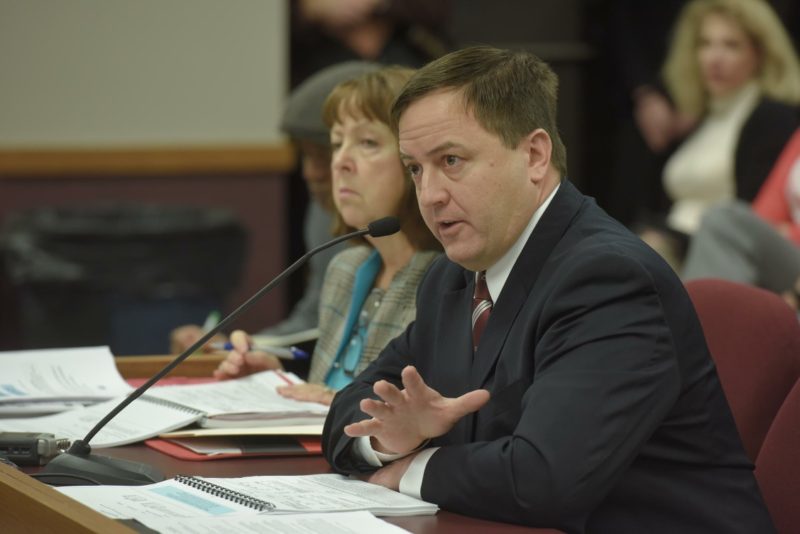JEFFERSON CITY, Mo. – Secretary of State Jay Ashcroft may have quietly had one of the best first months on the job of any current statewide official.
After easily winning election in August over Sen. Will Kraus and in November over Robin Smith, Ashcroft took over an office from Jason Kander, a politician who has become increasingly prominent on the national stage since he lost his U.S. Senate bid against Roy Blunt.
Since then, Ashcroft has assumed the role of Secretary of State, but he has not merely eased into time behind the desk. He has made significant progress legislatively on key issues that pertain to his office.
The most prominent fight Ashcroft undertook was to fully fund the implementation of Missouri’s new photo ID law. Ashcroft took a prominent stance on the passage of the ballot measure, even offering an initiative petition himself (though the petition that went onto the ballot came from the state legislature).

“I was in favor of photo ID, but that it had to be implemented in such a way that it didn’t stop registered voters from being able to vote,” Ashcroft said.
To achieve that, Ashcroft had to fight to expand a line-item in the state budget. Kander, his predecessor and outspoken opponent of photo voter ID laws, estimated a $5.2 million cost to paying for voter IDs cards and the documents to attain those cards, and most importantly a large voter education program. Ashcroft had a more conservative estimate of just under $1.5 million.
Gov. Eric Greitens gave his office only $300,000 in their budget estimations.
Ashcroft worked with the House Budget Committee to ensure his figure was the number required.
“If we hadn’t had enough money, then we were concerned about the rollout,” Ashcroft said. “We were concerned people wouldn’t understand what had happened. That’s why we tried to be pretty firm in saying this is what we need, and they were good enough and kind enough to make sure that’s what we were provided.”
Though the measure still remains divisive, Ashcroft has gone door-to-door in some areas thought to be most affected by the frankly large change in voting, and his education drive will continue on the bill.
As a result, Ashcroft also worked with the General Assembly to limit major voting rules changes in state law. He says he wants to roll out the photo voter ID law successfully before tackling other major changes.
However, he is looking forward to potential new changes regarding recounts and ensuring that candidates elected to office are actually qualified to hold office. Those problems have manifested themselves in the past and he wants to make some pre-emptive changes before they come up again.
In the near future, he says he would also like to do a wholesale re-evaluation of the rules and process to apply for businesses in the state, with a working group likely to start meeting at the end of June.
But by far Ashcroft’s most significant legislative achievement of the session came from his work with the legislature on a quick fix for the Safe at Home program, which protects the confidentiality of abuse victims. Victims of sexual or domestic assault can route their mail through a state post-office box to ensure their new addresses are not made public, and thus available to their alleged abuser.
However, a recent St. Louis court case saw a judge force a woman participating in the program to reveal her actual home address.
Ashcroft’s office contacted Sen. Bob Dixon, Rep. Joe Don McGaugh and leaders from both chambers to amend language onto the bill with just two weeks in session remaining. The bill would require a sworn statement for any person applying to be part of the Safe at Home program that they are a victim of abuse, solving the problem the judge in the aforementioned case with it. The language now sits in a bill on Greitens’ desk, waiting to be signed. Ashcroft said even he was surprised at the speed by which the body took up the language.
“At the time, we didn’t expect them to get it through,” he said plainly. “We wanted them to do the best they could obviously, but we knew it was very late to try to get something new done. We felt even if they weren’t able to get it through, at least that would prime the pump for next year.
“They deserve a tremendous thank you for moving that language through so quickly. It is a vital change to that program to help make sure we better protect the participants in that program.”
Those changes, along with restored funding for the state’s libraries, show Ashcroft has already made solid ties with the legislature even though he has only been in the state Capitol for the last four months.









